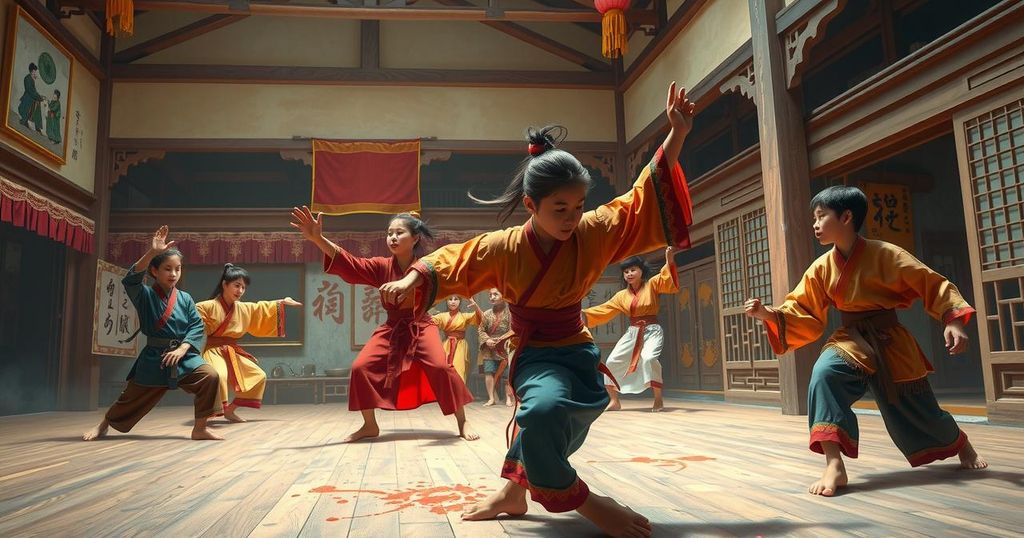Martial Arts Milestones Celebrated as African GOJU Marks 40 Years and Taekwondo Turns 50 in Ghana

Last Sunday, Ghana celebrated two martial arts milestones: African GOJU’s 40th anniversary and taekwondo’s 50th. The event gathered veterans and enthusiasts, highlighting the importance of these arts in Ghanaian culture and community. Danny Gwira, the founder of African GOJU, emphasized their role in youth discipline and cultural preservation, while Hanny Zahabi, who introduced taekwondo to Ghana, was honored for his contributions. Young practitioners showcased their skills, representing the future and growth of martial arts in Ghana.
Last Sunday, two significant anniversaries in Ghana’s martial arts were celebrated: African GOJU marked its 40th anniversary while taekwondo celebrated 50 years. The vibrant ceremony took place at Beda’s Hotel and Events Centre in Ashongman, Accra, attracting a mix of martial arts veterans, enthusiasts, and community leaders, all there to recognize the enduring legacies of these disciplines and their ongoing relevance in Ghanaian society.
Danny Gwira, founder of African GOJU, took center stage, urging Ghanaians to not only view indigenous martial arts as a form of self-defense but also as crucial for youth discipline and cultural preservation. He stated, “African GOJU is a unique system of martial arts involving 50 defensive techniques tailored to a typical African setting. It teaches you to endure, react, and be street-smart.” His words reflected a push for greater appreciation and integration of local martial arts practices into daily life.
Gwira emphasized the broader impact of African GOJU, saying it goes beyond physical training. He highlighted its focus on environmental awareness and community safety, calling it a lifestyle based on African values that prepares individuals for life’s challenges. This is about teaching resilience and moral responsibility in the face of societal issues.
The event also honored martial arts pioneers like Hanny Zahabi, who brought taekwondo to Ghana fifty years ago. In recognition of Zahabi’s contributions, the African GOJU community awarded him a black belt, showcasing respect for his long-standing dedication to the sport’s growth in the country. Zahabi remarked, “The sport has come a long way and is now a national pastime in many communities,” encouraging upcoming martial artists to uphold the core values of discipline and resilience.
A highlight of the celebration was a performance by over 20 young martial artists, ages 6 to 15, showcasing African GOJU techniques. These young practitioners captivated the audience, illustrating the increasing popularity of the indigenous martial art amongst Ghana’s youth. Each participant was awarded a certificate, symbolizing their commitment to continuing the legacy.
The event was presided over by Ambassador George Haldane-Lutterodt, a notable figure in Ghana’s athletics community and a patron of African GOJU. He praised Gwira’s efforts in keeping the martial art relevant today, reinforcing the importance of sustaining the discipline for future generations. “Let us ensure African GOJU stands the test of time,” he stated, emphasizing the need for continuity in martial arts practice.
Veteran figures like Donald Gwira and George Heward-Mills were present, weaving together the past and the future of martial arts in Ghana. Their involvement served to inspire younger generations, reinforcing the day’s theme—celebrating history while looking to inspire future martial artists.
This dual celebration underscored how martial arts function as a transformative force within Ghanaian communities. African GOJU, deeply rooted in local philosophy, and the globally recognized taekwondo have transcended mere sports to become instruments for cultural identity and nation-building. Gwira’s vision for empowering youth and preserving cultural integrity echoed throughout the event, calling for institutional support for martial arts in schools, communities, and wider national initiatives.
The 40th anniversary of African GOJU and the 50th of taekwondo served as a powerful reminder of martial arts’ role in Ghanaian society. The event not only celebrated the past but also reinforced the need for nurturing the future generation of martial artists. With a focus on cultural integrity and youth empowerment, the call for more institutional support for martial arts is more relevant than ever. Together, these two disciplines can continue to shape and inspire communities throughout Ghana.
Original Source: www.graphic.com.gh







